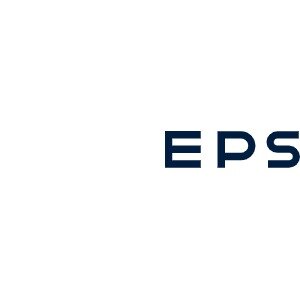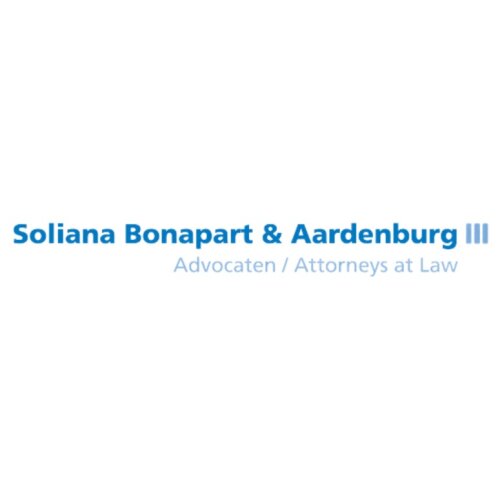Best Art & Cultural Property Law Lawyers in Curaçao
Share your needs with us, get contacted by law firms.
Free. Takes 2 min.
Or refine your search by selecting a city:
List of the best lawyers in Curaçao
About Art & Cultural Property Law in Curaçao
Art & Cultural Property Law in Curaçao encompasses the legal frameworks that govern the creation, ownership, and transfer of art and cultural artifacts. This area of law aims to protect the cultural heritage of Curaçao while also respecting the intellectual property rights of creators and ensuring lawful ownership and transactions of cultural items. Given Curaçao's rich history and diverse cultural legacy, understanding how these laws apply is crucial for collectors, artists, museums, and others involved in the art and cultural sectors.
Why You May Need a Lawyer
There are several situations where individuals or organizations might require legal help in Art & Cultural Property Law in Curaçao:
- Disputes over ownership of cultural artifacts or artworks.
- Negotiations and agreements related to the sale or loan of art pieces.
- Legal issues surrounding the import or export of cultural property.
- Ensuring compliance with local and international cultural property laws.
- Resolving issues related to intellectual property rights of artists and creators.
- Assisting museums and cultural institutions with legal advice related to their collections.
Local Laws Overview
In Curaçao, several key legal aspects are particularly relevant to Art & Cultural Property Law:
- Heritage Protection: Laws are in place to safeguard Curaçao’s cultural heritage, which includes restrictions on the removal of cultural artifacts from the island.
- Intellectual Property: Regulations protect the rights of local artists and creators, ensuring they receive due recognition and compensation for their work.
- Import and Export Controls: Strict guidelines govern the movement of cultural property across borders to prevent unlawful trade and loss of cultural heritage.
- Restitution and Repatriation: Procedures exist for the restitution of unlawfully acquired cultural artifacts, in line with international agreements.
Frequently Asked Questions
What constitutes cultural property in Curaçao?
Cultural property includes objects of significance for archaeology, prehistory, history, literature, art, or science. This can range from historical artifacts to contemporary artworks.
Is a license required to export cultural items?
Yes, exporting cultural items from Curaçao typically requires a permit from relevant governmental authorities to ensure compliance with protection laws.
How can one prove legal ownership of a cultural artifact?
Proof of ownership can include purchase receipts, transfer agreements, and any legal documents showing a lawful transaction or gift.
What steps should be taken if an artifact is suspected to be stolen?
Contact local authorities and possibly seek legal counsel to understand the procedures for reclaiming stolen cultural artifacts in accordance with local and international laws.
Are there penalties for unlawful dealings in cultural property?
Yes, there are legal penalties that may include fines and imprisonment for engaging in illegal transactions involving cultural property.
Can artists in Curaçao recover rights over their sold artworks?
Under certain conditions, artists may have moral rights that protect their personal and reputational interests over sold works, depending on the agreements made during the sale.
How does one legally acquire cultural items in Curaçao?
Legal acquisition should involve verifying provenance, ensuring lawful purchase processes, and complying with all relevant local and international legal requirements.
What role do museums play in cultural property law?
Museums help preserve cultural heritage by responsibly managing collections and adhering to legal frameworks regarding acquisition and exhibition.
Are there any international agreements affecting Curaçao's cultural property laws?
Yes, Curaçao's cultural property laws are influenced by international treaties like UNESCO’s conventions, which guide the protection and restitution of cultural properties.
Where can disputes over cultural property be resolved?
Disputes can be settled through negotiation, mediation, or legal proceedings within domestic courts or international arbitration forums, depending on the case.
Additional Resources
For more information and support, consider reaching out to the following resources:
- Curaçao National Trust: An organization focused on the preservation of Curaçao’s cultural and historical heritage.
- Ministry of Education, Science, Culture, and Sports Curaçao: Offers guidance and assistance regarding cultural legislation.
- UNESCO Office in Kingston: Provides resources in line with international cultural property laws and practices.
- Local Legal Practitioners: Engaging with lawyers specialized in cultural property law for tailored advice and representation.
Next Steps
If you need legal assistance in Art & Cultural Property Law, consider the following steps:
- Identify and document any relevant details about your case or concern.
- Contact a lawyer specialized in art and cultural property law in Curaçao for a consultation.
- Gather any supporting evidence or documentation that could assist your legal representative.
- Stay informed about both local and international laws governing your situation to discuss options effectively with your lawyer.
Taking proactive steps and consulting with knowledgeable professionals can significantly influence the successful management and resolution of art and cultural property-related legal issues.
Lawzana helps you find the best lawyers and law firms in Curaçao through a curated and pre-screened list of qualified legal professionals. Our platform offers rankings and detailed profiles of attorneys and law firms, allowing you to compare based on practice areas, including Art & Cultural Property Law, experience, and client feedback.
Each profile includes a description of the firm's areas of practice, client reviews, team members and partners, year of establishment, spoken languages, office locations, contact information, social media presence, and any published articles or resources. Most firms on our platform speak English and are experienced in both local and international legal matters.
Get a quote from top-rated law firms in Curaçao — quickly, securely, and without unnecessary hassle.
Disclaimer:
The information provided on this page is for general informational purposes only and does not constitute legal advice. While we strive to ensure the accuracy and relevance of the content, legal information may change over time, and interpretations of the law can vary. You should always consult with a qualified legal professional for advice specific to your situation.
We disclaim all liability for actions taken or not taken based on the content of this page. If you believe any information is incorrect or outdated, please contact us, and we will review and update it where appropriate.
Browse art & cultural property law law firms by city in Curaçao
Refine your search by selecting a city.









